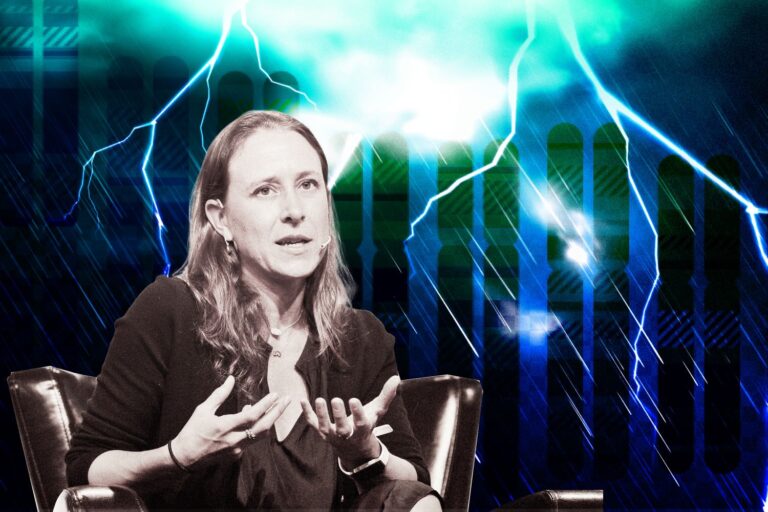Elemy to Conquer the Greatest “Pandemic” of Autism at 1.5M Children

Many people believe that life is fair and all of us have been given the same opportunities as human beings. However, life turns out unfair when it can be apparently seen that not all children were born normally and healthily. CDC’s Autism and Developmental Disabilities Monitoring (ADDM) Network indicates that one in 44 kids has been diagnosed with autism spectrum disorder (ASD). According to parents’ reports, around 1 in 6, about 17% of children between the ages of 3 and 17 have a developmental handicap. Importantly, it is reported that today over 1.5 million children are affected by autism
A $10 Million Entrepreneurial Initiative Brings Autism Care Home on The Tide of Therapy Centers Closing
Autism was discovered to be the fastest-growing developmental impairment, affecting between 1-2% of the world’s population, prior to the pandemic. In addition, autism spectrum disorder (ASD) affects up to 1 in every 54 children in the United States and, depending on the severity, costs everyone between $1.4 and $2.3 million over their lifetime.
Young people on the spectrum are suffering more than ever to have access to the resources they need and to avoid regression as a result of the closure of diagnostic and therapy facilities and the financial insecurity affecting every American household. Therefore, there could not be a better time for business to eye the autism care sector. It’s high time to focus on addressing the problem and fighting for the pediatric unfair disadvantage over other normal kids just like what Elemy has been doing!
Elemy is a notable provider of behavioral therapy and mental health services for children nationwide. They offer families with matching therapists, resulting in good care for impaired conditions such as autism, ADHD, anxiety and depression, and bipolar. The company supplies integrated and customized care for children which is delivered in-home. They also apply various forms of delivery, both in-person and virtual support.
That entails establishing a tech-enabled platform that offers three services:
- Free autism tests
- Therapist matching services based on need
- Tailored treatment plans delivered at home, according to one special firm.
Elemy had been able to shorten testing wait times and streamline treatment, saving time and money, by adopting a digital approach to autism care and treatment. And the company’s debut put them on schedule to do just that with $10 million in seed funding.
Therefore, many access hurdles are eliminated by sending therapists to the patient’s home and remotely coordinating, monitoring, and adjusting care plans as necessary. For young individuals and families with low financial resources, this is especially crucial.
Elemy establishes a strong position in the marketplace and drastically contributes to autism children’s development when there is 83% reduction in problem behaviors and an 88% increase in new skills within six months of patients using its services.
Story of Empathy from a Child Diagnosed with ADHD

Besides its impactful contribution, Elemy has an inspirational founding story.
Elemy is a San Francisco-based company founded in 2019 by Yury Yakubchyk. Yakubchyk was a doctor, but he showed an aptitude for doing business. During his twenties, he had involved himself in various transactions to make ends meet. He founded Wing, a millennial-friendly wireless phone carrier right after graduating from college. He also immersed himself in Airbnb by renting out his own room for $180 per night regardless of ending up sleeping on the couch. Besides, he was also doing some tutoring and freelance jobs.
All of these did not fulfill Yakubchyk so that he decided to make use of his knowledge in ABA (Applied Behavior Analysis) therapy. Yury had a concrete foundation that supported him in commencing in this field as their parents were both doctors. Interestingly, he collaborated with his father who is a pediatrician to establish Elemy.
Yakubchyk and his father show exclusive empathy with children who suffer from chronic behavioral problems for Yakubchyk also diagnosed with severe ADHD when he was a child. He was attributed as being incapable of thinking through and self-development. But how he rocks it in telecommunication, hospitality to autism care really proved that by figuring out the positives, your strength, where you can improve and not over-focusing on the negatives, children with neurodiverse can be completely able to grow normally, even outstandingly.
Yakubchyk watched his parents struggling while they navigated behavioral healthcare systems across three countries. He believed there had to be a better solution. This steadfast belief has helped Yakubchyk define Elemy’s mission of embracing innocent kids’ behavioral issues and tirelessly providing them with novel treatment by advancing AI-Powered technologies.
Chiefly, Elemy’s founder noticed people’s difficulties in taking healthcare service during the pandemic. Back then, he did not want to drive his child to the clinic or call for a caregiver with the risk of infecting Covid-19. Hence Elemy was born a tech-enabled platform for clinicians to manage administrative work more effectively and deliver life-changing care.
A Promise of Immediate Solution for Pediatric Behavioral Problem Leads to a Unicorn Startup
One of the key drivers of Elemy’s clinical model is that it immediately emphasis on dealing with the kinds of behaviors that are likely to impede the child’s personal development and can also prevent them from capitalizing on their strengths and learning new skills in therapy. Elemy’s platform can shorten the patient onboarding process from an industry average of six months to two years to as little as 12 weeks by streamlining the process and more quickly matching expert clinicians with patients, the company claims. This gives families back time that is essential for achieving the best outcomes for their children.
Accordingly, Elemy has now achieved unicorn status by earning a total of $323M in funding over 3 rounds. It provides a technological platform for individualized treatment. Clinicians at Elemy develop customized treatment schemes that are delivered online or at a child’s home, where they are more comfortable and have less distractions. According to the organization, data are gathered to assess effectiveness and guide the development of both specific treatment programs and more comprehensive clinical strategies.

The company was valued at $1.15 billion a year ago. Their latest funding was raised on Oct 6, 2021, from a Series B round. Besides, Elemy aimed at expanding its national reach, so it planned to use the fresh capital to invest in the company’s human resources. The business had grown significantly, going from having 109 employees at the time of its seed round to over 1,000. Elemy claims its model of care is delivered by a group of board-certified behavior analysts working in collaboration with highly skilled registered behavior technicians to administer its style of care.
It was said by the press release that the company had been already delivering care and changing children’s lives in 14 states. The company is backed by venture capital and healthcare investors including General Catalyst, SoftBank, Founders Fund, and others. Andrew Zloto, director at SoftBank Investment Advisers once stated that. “We have been impressed with the speed of Elemy’s growth and expansion since its launch and are excited to partner with Yury and the team as they continue to grow their business and expand into new areas of pediatric behavioral health.”
The Cost of Growing Too Fast: An Operation Loophole
The Autism Therapy Company had risen to unicorn status in about 2 years until it underwent a sudden layoff this year. The effects and the precise number of workers laid off during this round of layoffs are still unknown. The overall number of Elemy employees let go during an earlier wave of layoffs in March was not disclosed. The management of Elemy announced a restructuring to concentrate on Florida, Texas, and California as its three main states.
This abrupt change has affected negatively to many families using the firm’s services. As the company decided to cut off laborers and just focus on 3 core states, this meant that children in Illinois and Georgia, as well as those who had been grandfathered in from other regions following the March restructuring, suddenly lost access to in-person services.
Lisa Rudisel’s son is a typical victim of this layoff. Every weekday for three hours, her son, who has both autism and Down syndrome, met with a specialist who helped him acquire everyday skills like eating and using the bathroom. Those services suddenly ended 1 year after they began without any warning. The sole explanation from the company for this cutting off is that they need to terminate in-person services in Illinois citing that “market conditions” require a better focus on the areas they serve.
All things considered that rapid growth of SoftBank-backed mental healthcare company has been proven to be unsustainable. These children have been attached to the therapist and really hinged on their care team. After the termination of the service, Rudisel’s son kept asking her if the technician would come over and Rudisel didn’t know how to make him cognitively the concept of never again.
Did It Go The Whole Hog? The Effort of Shortening the Autism Care Delivery Process
In order to meet the rising demand from parents seeking assistance for their children with autism and other healthcare difficulties, the national supplier of pediatric behavioral and mental healthcare revealed plans this year to boost the number of healthcare professionals in the state of California. With the intention of hiring in California, where 162 families are now waiting to be vetted and matched with an RBT, the company has introduced Ecademy, a fully paid 3-month training and certification program for Registered Behavioral Technicians (RBTs).
Elemy is putting effort to educate and hire clinical talents to reduce the industry-standard two-year wait time to a few weeks. However, the context is deemed not to be very positive. Elemy, a $1.15 billion company financed by SoftBank, reportedly wanted to revolutionize the way autism is treated, but it made unrealistic claims about its ability to help children.

Elemy’s employees once claimed the firm failed to hire clinicians and put children on waitlists. One family’s daughter Hope recently received a diagnosis of autism, and their doctor suggested they try applied behavior analysis, a sort of autism therapy. The moment Elemy’s family learned of the diagnosis, they heard from Elemy. The startup informed them that they would begin counseling no later than eight weeks after completing an initial exam. But they ended up failing to deliver it. More efforts from Elemy are needed for better services, the $10M seed funding startup is implementing various approaches to improve the situation and close the quality gap.
Startup’s Biggest Stumbling Block and Advice for Soon-To-Be Entrepreneurs
The process of turning a big idea into a real, sustainable business has proven to be the most difficult part of launching a business. It requires a lot of effort, money, some setbacks, and certainly, patience.
Taking Elemy’s business story as a role model, businesses can take in some precious moral study to succeed in their sphere. The key factor of nailing a business is aiming for action. Making hypotheses and doing research on paper will only get you at the beginning. You must engage with your customers by putting ideas, goods, and services to test the marketplace. Additionally, you need to be aware that if product-market fit is improved, the original form of any idea is likely to evolve. The only way to find the ideal fit is to test out several concepts in a real-world setting.
As far as we can see, children and families that are underserved had an unexpected chance to access new types of care due to Covid-19. Although In-home care has been unquestionably only the first step, for people who have family members who are autistic, that step is significant and might even change their lives.
All things considered, Elemy has been doing a good job in pioneering a tech-based solution for those facing behavioral problems. The world is changing day by day, there will be no one-size-fit-all product, innovation and continuous improvements are essential for not only Elemy but all existing businesses in the market also. Tomorrow and over the next few years, I hope to see Elemy grow into new verticals, provide care for a variety of other health conditions and continuously bring value to its society.








